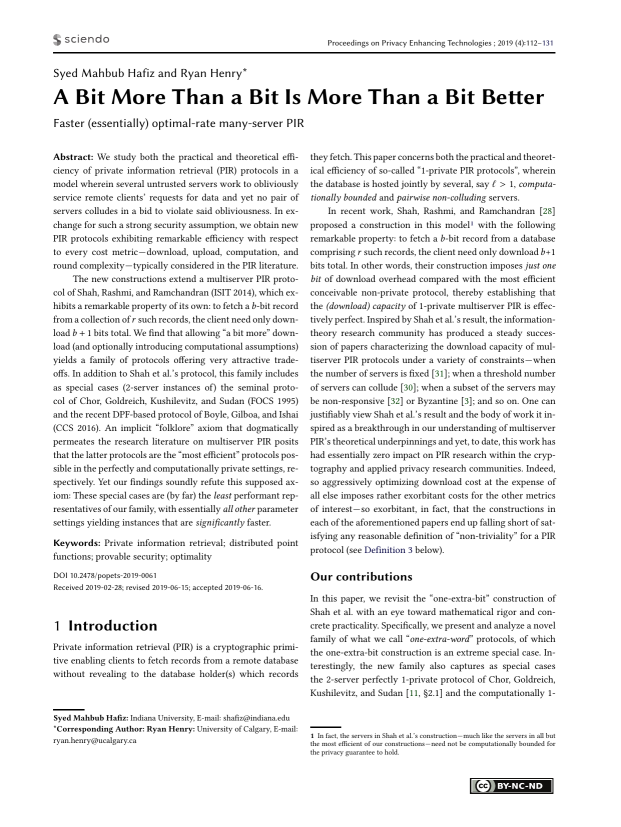A Bit More Than a Bit Is More Than a Bit Better
Authors: Syed Mahbub Hafiz (Indiana University), Ryan Henry (University of Calgary)
Volume: 2019
Issue: 4
Pages: 112–131
DOI: https://doi.org/10.2478/popets-2019-0061
Abstract: We study both the practical and theoretical efficiency of private information retrieval (PIR) protocols in a model wherein several untrusted servers work to obliviously service remote clients’ requests for data and yet no pair of servers colludes in a bid to violate said obliviousness. In exchange for such a strong security assumption, we obtain new PIR protocols exhibiting remarkable efficiency with respect to every cost metric—download, upload, computation, and round complexity—typically considered in the PIR literature. The new constructions extend a multiserver PIR protocol of Shah, Rashmi, and Ramchandran (ISIT 2014), which exhibits a remarkable property of its own: to fetch a b-bit record from a collection of r such records, the client need only download b + 1 bits total. We find that allowing “a bit more” download (and optionally introducing computational assumptions) yields a family of protocols offering very attractive tradeoffs. In addition to Shah et al.’s protocol, this family includes as special cases (2-server instances of) the seminal protocol of Chor, Goldreich, Kushilevitz, and Sudan (FOCS 1995) and the recent DPF-based protocol of Boyle, Gilboa, and Ishai (CCS 2016). An implicit “folklore” axiom that dogmatically permeates the research literature on multiserver PIR posits that the latter protocols are the “most efficient” protocols possible in the perfectly and computationally private settings, respectively. Yet our findings soundly refute this supposed axiom: These special cases are (by far) the least performant representatives of our family, with essentially all other parameter settings yielding instances that are significantly faster.
Keywords: Private information retrieval; distributed point functions; provable security; optimality
Copyright in PoPETs articles are held by their authors. This article is published under a Creative Commons Attribution-NonCommercial-NoDerivs 3.0 license.

